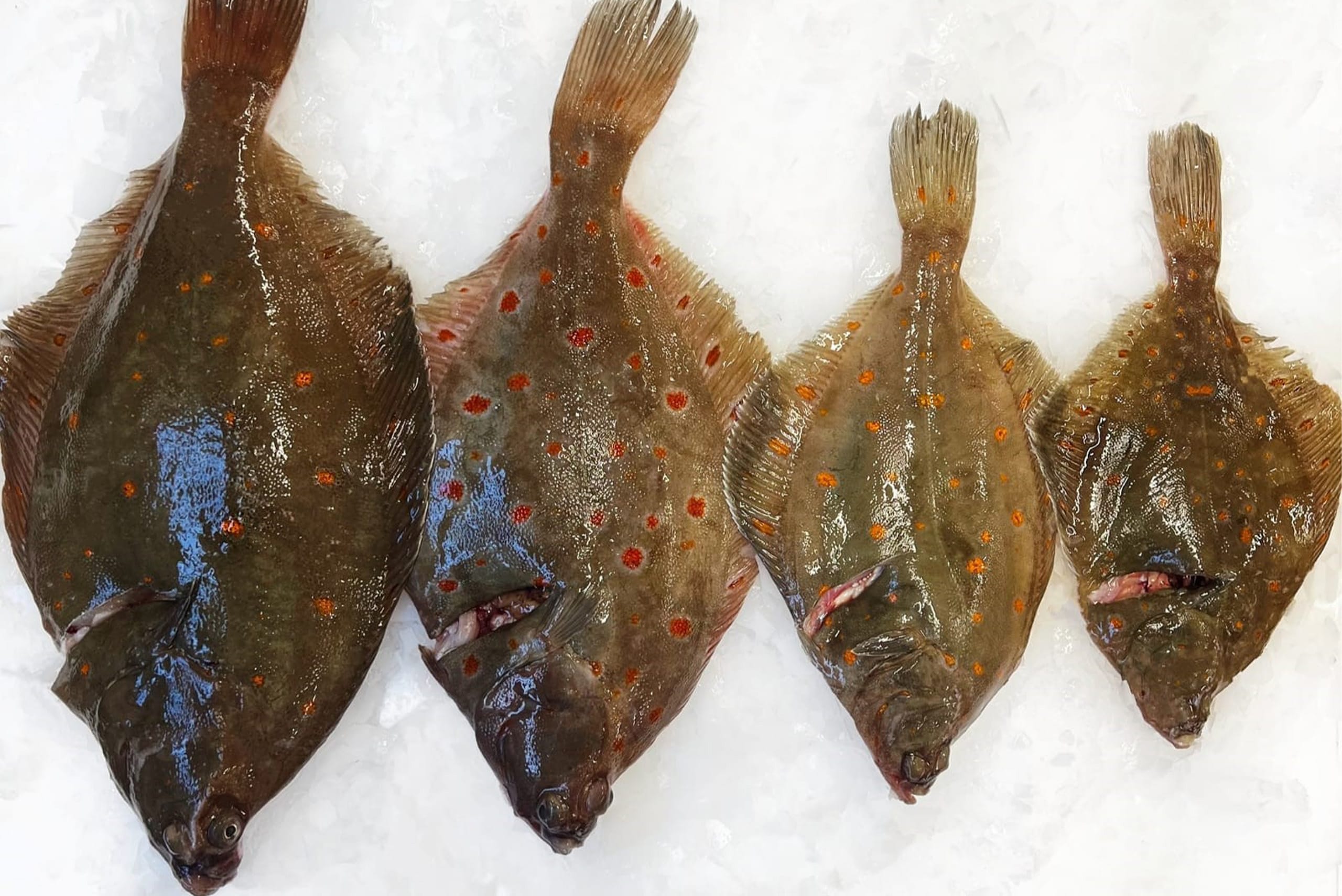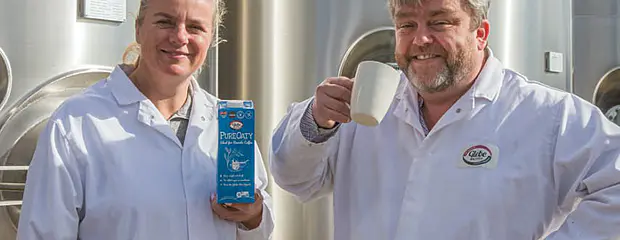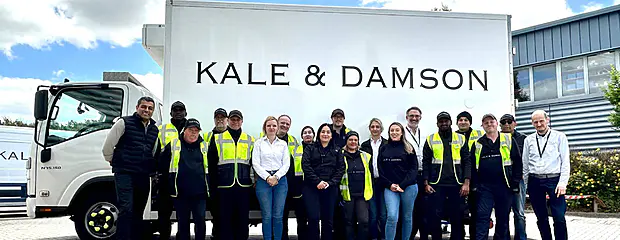Jun 12 2025
Focus on our suppliers: Direct Seafoods Colchester
Seafood experts with a passion for fish
Direct Seafood Colchester has been around for almost 40 years, suppling quality fresh fish and seafood to the catering industry in the East and South East of England, including Hinxton Hall Conference Centre.
Their buyers get up early each day to bid on the daily landings from the local fish markets - such as fish from Lowestoft and local oysters from Maldon - and get the best fish available. They then prepare and deliver the fish and seafood, fresh and frozen, along with deli products, directly to professional kitchens. And thanks to their sister seafood businesses within Direct Seafoods, they are also able to source seafood from ports across England, Wales and Scotland.
A behind-the-scenes look at the passionate team at Brixham Harbour
A behind-the-scenes look at the passionate team at Brixham Harbour
Which fish come from where?
Lowestoft in Essex offers species such as skate and dover soles all year round, cod in the winter, sea bass in the spring and summer, lobsters in summer, and the occasional small landings of herring, sprats, turbot, brill and monkfish.
Brixham fish market in Devon lands over 40 species of fish, coastal native species like lemon sole, john dory, gurnard, red mullet, plaice, brill, turbot, whiting, megrim sole, dover sole, monkfish, mackerel, herring, sardines, hake and many more. This is in addition to a wide range of hand dived and day boat shellfish such as, scallops, crabs and lobsters.
Newlyn and Plymouth fishing provide a wide range of local species including plaice, dover and lemon sole, brill, turbot, monkfish, squid and cuttlefish.
Farmed fish often features on menus due to its consistent quality, availability and price. To guarantee responsible sourcing, Direct Seafoods buy and import directly from source, such as salmon from Scotland and Norway.
For live shellfish, they only work with small, specialist operators. In summer months they buy lobsters and crabs from local fishermen and during the winter they import them directly from North America.
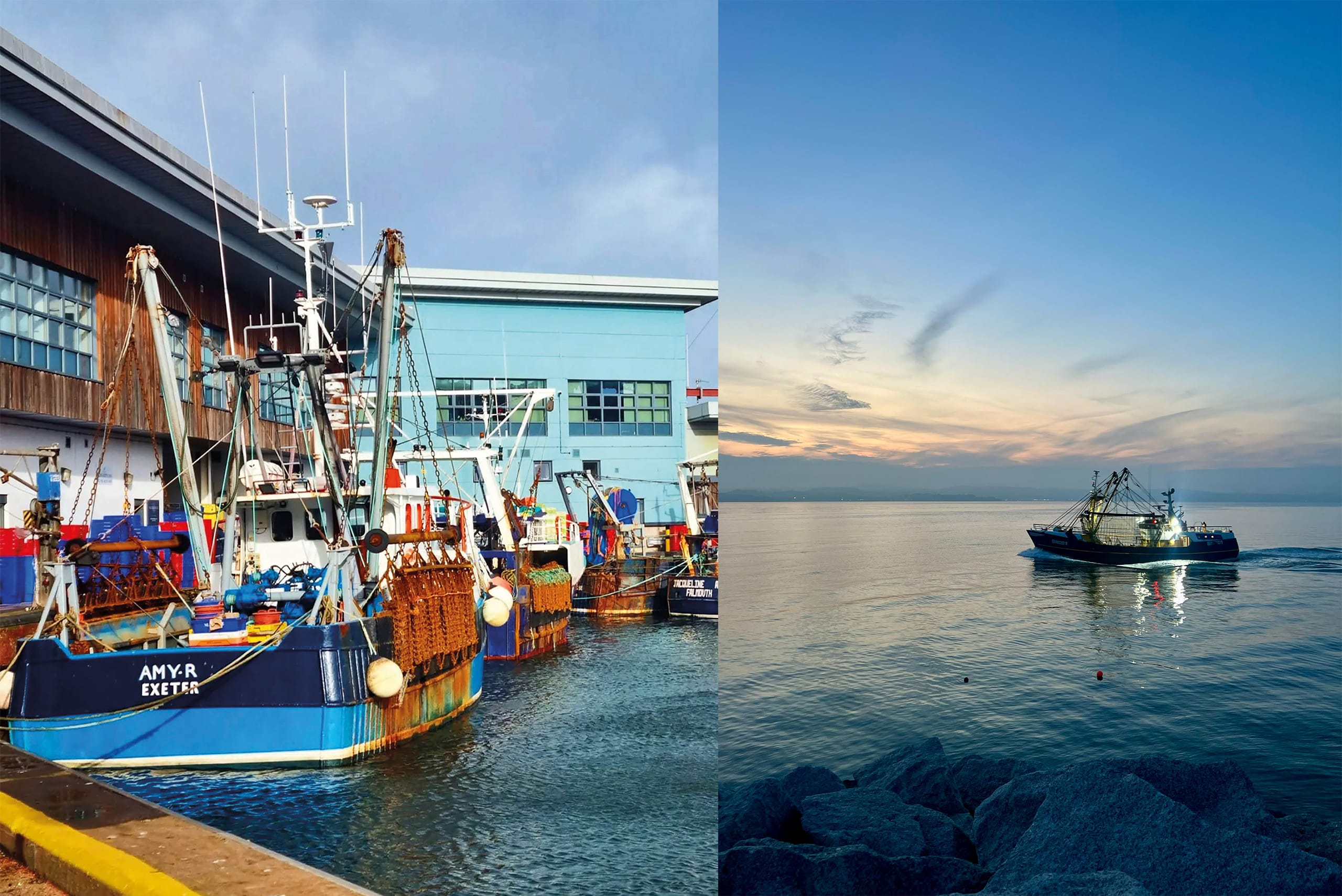
Responsible sourcing and fishing
A significant amount of seafood is wild caught which can lead to overfishing, unwanted by-catch, and destructive catch methods. Sourcing fish responsibly is essential to seas’ - and their business’ - future.
Direct Seafoods Colchester is dedicated to promoting the most sustainable products available and works closely with their suppliers, and NGOs such as the Marine Stewardship Council and the Marine Conservation Society, to develop and market sustainable alternatives.
These seafood sustainability principles govern their work:
- They seek, and give preference to, suppliers accredited with third party independent responsible sourcing accreditation.
- They know the source and origin of the seafood they sell and endeavour to shorten the supply chain wherever possible.
- They never knowingly sell products that damage the environment or risk the survival of a species without a plan to rectify the products sustainability credentials.
They also accept that nothing will ever remain completely sustainable; sustainable choices can become unsustainable, and vice versa, depending on their management. So they see their work as a journey guided by the Marine Stewardship Council and other NGOs and industry organisations they collaborate with, which in turn guides their customers on making sustainable choices.
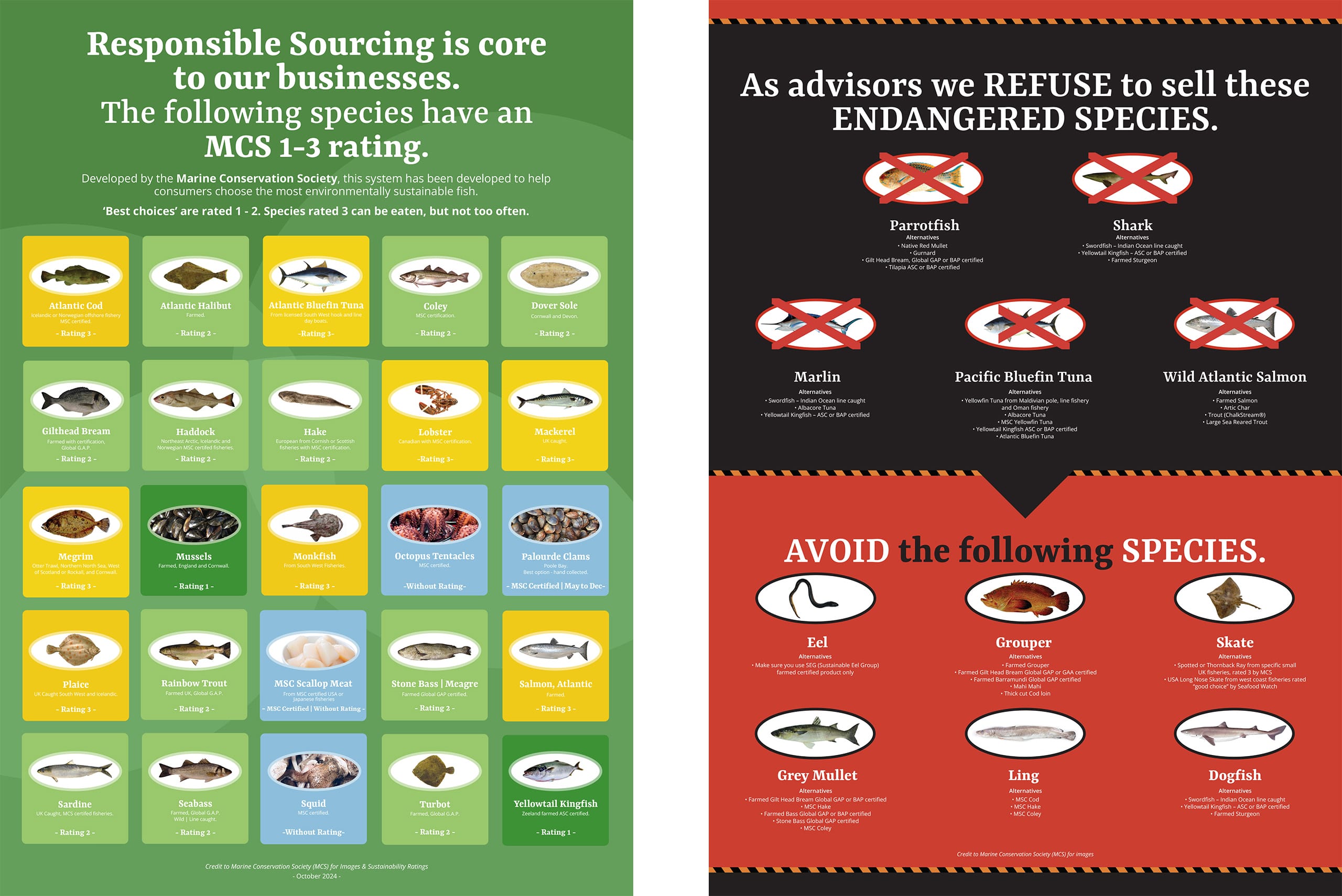
How do they guide their customers in making more sustainable choices?
In 2022, Direct Seafoods Colchester won the MSC UK Fresh Fish Foodservice Supplier of the Year award. This recognises their ongoing investment in skills training linked to their unwavering commitment to support customers in making sustainable seafood choices.
As part of their commitment to seafood sustainability, they offer support in key areas, including:
- Menu development with seasonal availability advice.
- Menu analysis with sustainability scoring.
- Menu seafood training for front of house staff, to improve sales and menu knowledge.
- Educational visits to local wild fish auctions for chefs to understand their seafood’s provenance.
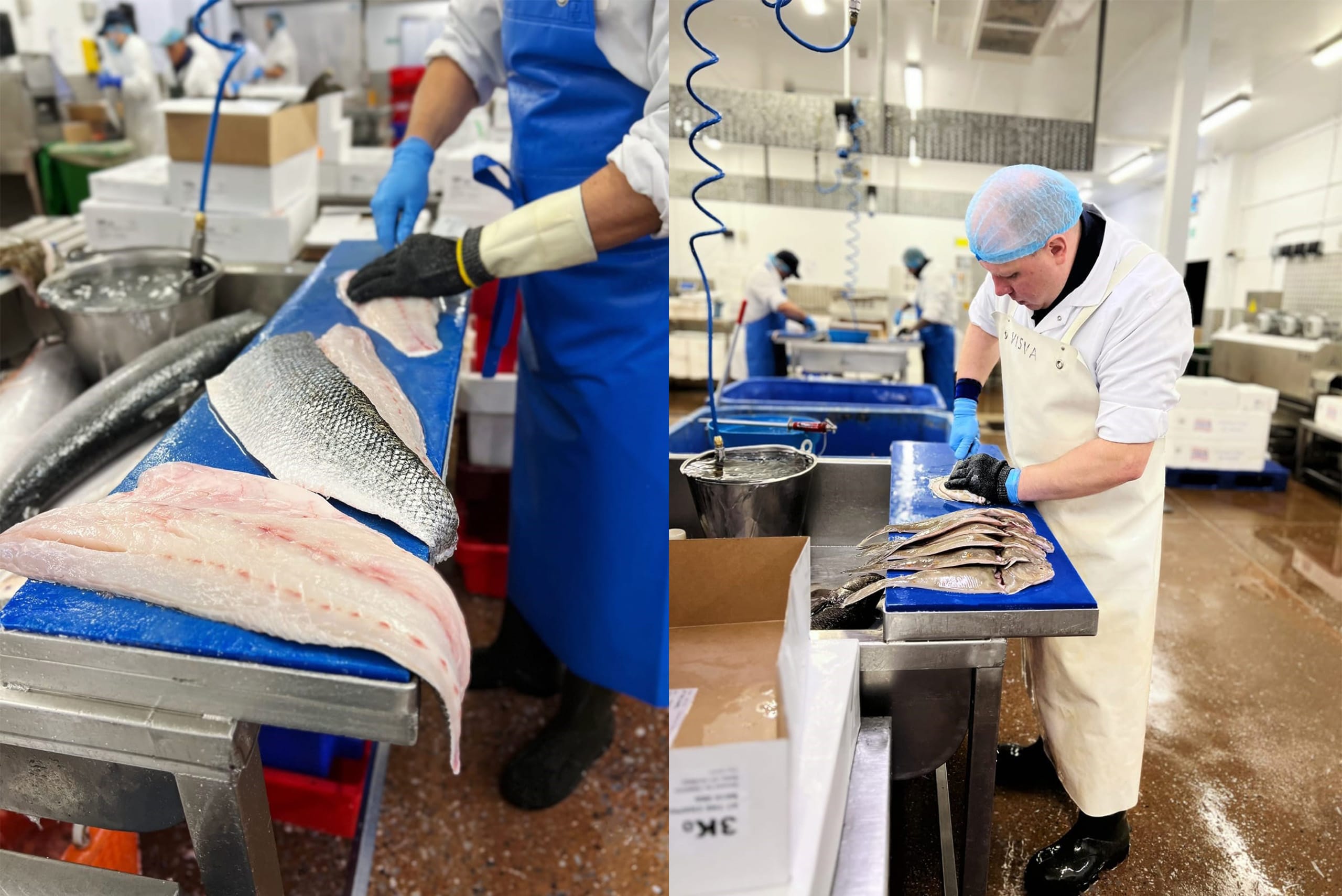
On their website you can also find:
- 'Catch up' their quarterly market report - Advises on the availability of fish and seafood, as affected by weather conditions etc during that quarter. It also contains a seafood buyers suggestion list to assist with menu planning, coupled with industry news.
- A Seasonal Guide - provides a comprehensive list of species available each month to support menu planning.
- Downloadable charts - Fish to avoid and Sustainable Fish Choices (as above)
- Many videos on fish filleting and preparation
We learnt a lot preparing this article. We hope you have too!
